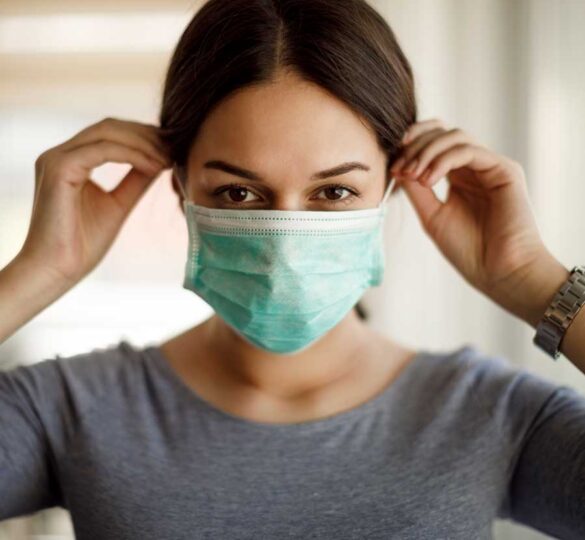Eye Health Tips from a Glaucoma Specialist
During these complex times, protecting your eyesight is more important than ever. Here are 6 tips for taking care of your eyes from glaucoma specialist Dr. Andrew Iwach.

Vision is a complicated process by which images captured by the eye are interpreted by the brain. Our eyes work with our brains to interpret the sizes, shapes, and colors in the world around us.
But because the eye’s structure is so complex, it is important to protect your eyes from things that can potentially go wrong. Following are tips for taking care of your eyes from glaucoma specialist Andrew Iwach, MD.
1. Have a regular eye exam
The American Academy of Ophthalmology recommends that if you haven’t been seen by an eyecare professional by the time you’re 40 years old, you should have a baseline exam and then follow the recommendations you receive at that exam. If you have any eye or vision symptoms currently, get seen by an eyecare professional regardless of your age. People are busier than ever, but taking the time to make and keep eye exams is the most important thing you can do to protect your sight.
2. Do what you can to avoid trauma to your eyes
Vision is critical to our quality of life, but our eyes are very delicate. OSHA has done a lot to improve eye safety in the workplace. Now with so many people working from home and just generally spending more time there, about half of the eye injuries we’re seeing in our office are sustained during home improvement projects. People should wear protective eyewear when doing these types of projects and be very conscious of their eyes and the eyes of those around them any time they are doing such work. Protective eyewear is important to protect eyes from trauma during sports as well, particularly sports such as squash and racquetball.
3. Wear UV protection
Sunglassesand brimmed hats can protect your eyes from damage due to UV rays.
4. Get a regular physical exam
Diseases such as diabetes and high blood pressurecan have a significant impact on your vision. Diagnosing and managing these conditions is therefore a very important part of maintaining your eye health.
5. Don’t smoke
Smoking increases the risk of vision loss. For many individuals the risk of vision loss is a stronger motivator to stop smoking versus the risk of lung cancer.
6. Don’t let COVID stop you
Since March 2020, we’ve told our patients, “We want to save your life AND your sight.” Eye care offices across the country have taken many steps to keep patients and staff safe during office visits. The Glaucoma Research Foundation has information available, including a video, to summarize these precautions and make patients aware so that they are comfortable keeping their necessary in-person appointments. If you still have concerns, talk to your eye care provider — but please don’t skip your exam without calling your provider first.
Article by Andrew G. Iwach, MD. Posted on February 4, 2021.

Andrew G. Iwach, MD
Andrew G. Iwach, MD, is Associate Clinical Professor of Ophthalmology at the University of San Francisco, Executive Director of the Glaucoma Research and Education Group in San Francisco, and a faculty instructor at the California Pacific Medical Center Department of Ophthalmology.